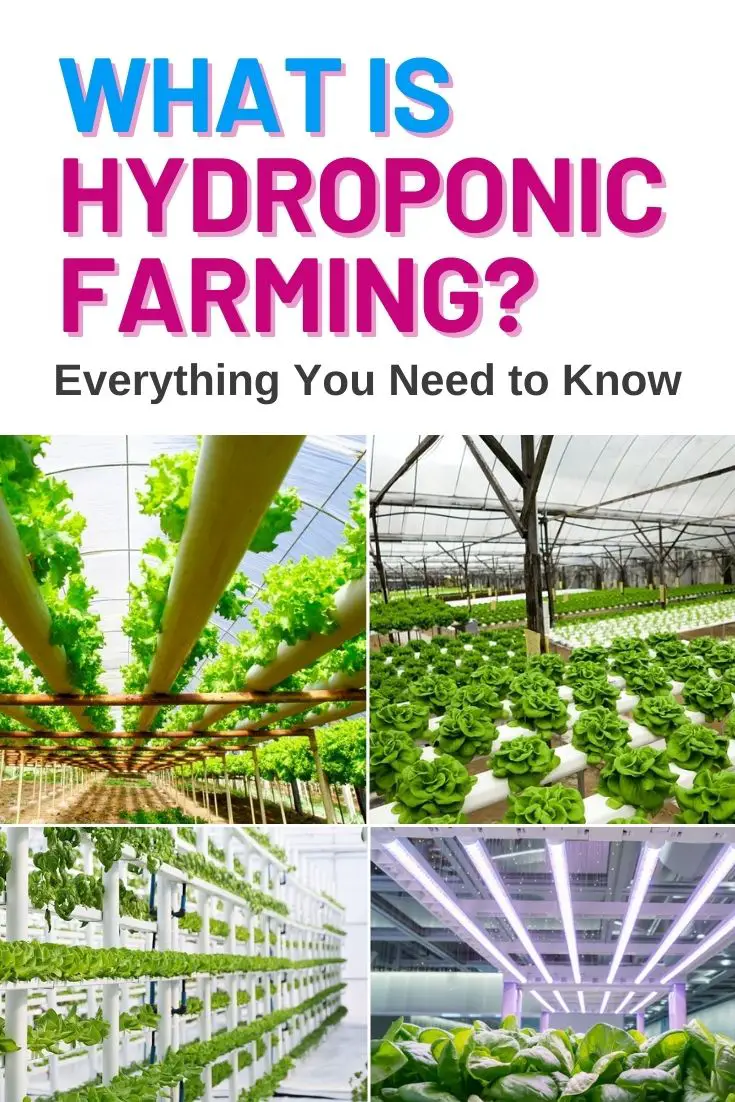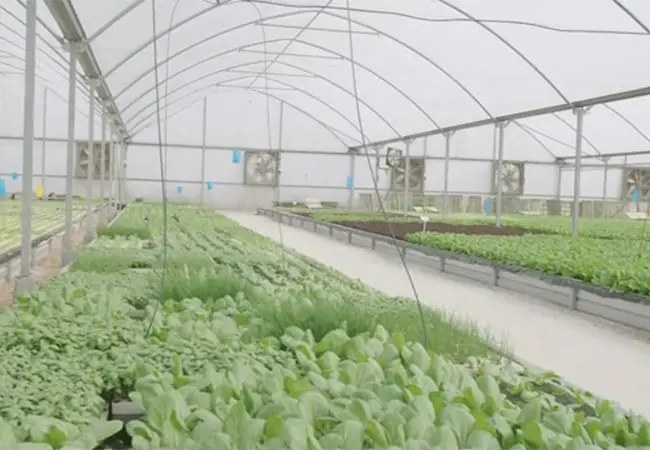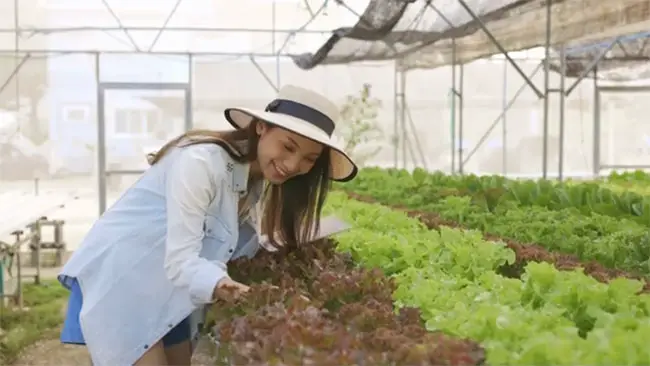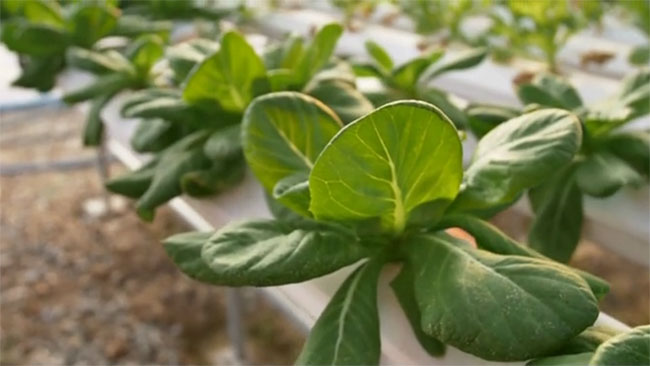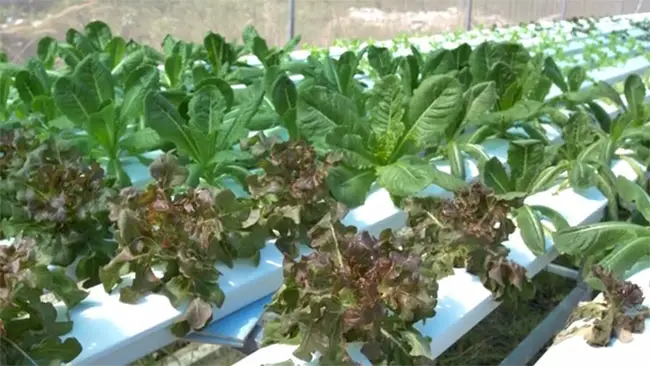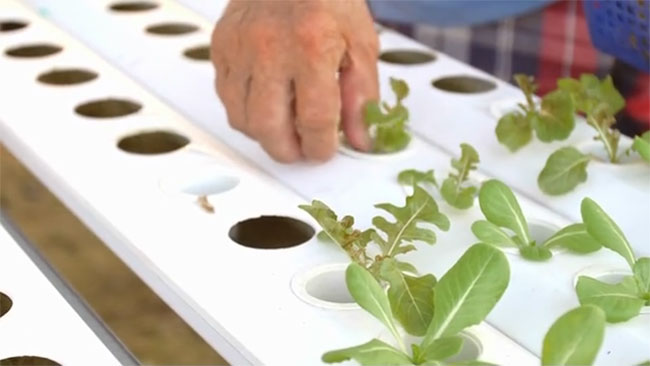Typically when people think about agriculture, they conjure images of sprawling fields of alfalfa or corn over the great plains of America’s midwest. It might surprise them to learn that all of that land is not necessary to produce lush crops. Hydroponic farming is the key to this contradiction. So, what exactly is hydroponic farming?
Hydroponic farming is a farming technique that does not require soil to grow crops and plants. Instead, plants are seated over and supplied with a nutrient-rich solution. Eliminating the need for soil means crops and plants can be grown in many more varied environments.
This farming method turns one of the most fundamental beliefs about agriculture on its head by eliminating the need for soil. Hydroponic farming has been proven to be much more beneficial to farmers by ecological and economic standards. Read on to learn everything you need to know about this incredible, futuristic method of farming.
What is the Hydroponic Farming System?
Hydroponic farming is the next big development in the world of agriculture. It uses revolutionary technology that offers a ton of benefits to all sorts of commercial farmers. This technology is exciting because it negates soil use, widely accepted as a fundamental farming component. Hydroponics breaks that rule!
Some of the benefits that hydroponic farming offers include the following:
- More efficient use of space
- More sustainable water usage
- An increase in profits due to a less significant need for water
- Increased access to farming opportunities for those with limited space
- Higher-quality produce is created at a lower cost
In traditional methods of farming, plants need to develop strong and dense root networks. They require adequate space so that they have room to develop to their fullest potential. Conversely, plants grown using the hydroponic farming method do not need as much space as their roots will already be fully submerged in nutrients.
Hydroponic farming techniques also tend to require significantly less water than traditional farming. Around 80 percent of the water used in the United States goes to crops in commercial farming. This huge environmentally-friendly reduction in water usage can help make the world a greener place for years.
Farmers that have begun growing their crops with the hydroponic method have observed about 50 percent faster crop growth when compared to those grown using more traditional methods. Such enhanced turnaround times allow the farmer to produce food more efficiently and cheaply, which will help increase their profitability.
What is Vertical Hydroponic Farming?
Hydroponics allows farmers to grow many crops in the same space they would normally use in practicing more traditional farming methods.
Vertical hydroponics allows those with limited space to further maximize the production potential.
Many people lack the horizontal space necessary for a garden. These people are unable to use their limited space without a vertical hydroponic system. Fortunately, this incredible agricultural development provides people living in apartments or urban areas with space constraints the opportunity to cultivate their own food and flowers.
In the vertical farming system, water flows from the top of the structure to the bottom through gravity. The unused water is collected at the bottom and recycled to ensure that the plants access the nutrients they need. Thus, vertical hydroponics is a highly ecologically responsible system concerning water usage.
Additionally, a vertical hydroponic farming system performs efficiently, but it can also be a beautiful decorative piece in one’s home, office, or balcony. People love to see a thriving garden of different varieties, and the structures of many vertical hydroponic systems are attractive sights. This system is excellent in form and function.
What is Hydroponic Vegetable Farming?
The most useful application for hydroponic farming has to be vegetable growing. This is an incredible system to use for commercial farmers who want to produce more crops without investing in more land. Hydroponic vegetable farming is an amazing method that future farmers will surely employ to feed the world.
Some of the vegetables that can be grown using hydroponic methods include the following:
- Tomatoes (yes, technically a fruit)
- Spring onions
- Lettuce
- Spices
- Cucumbers
The vegetables that can be grown using the hydroponic system are delicious and highly nutritious as well. The system would allow farmers with limited space to grow organic produce for their own consumption, which could have an incredibly beneficial effect on their diets.
Tomatoes and other vining plants work extremely well in a hydroponic system because they require very little ground space to grow. A person using this method should keep in mind that they will need to provide support for the tomatoes as they grow taller towards the roof. These incognito fruits grow great in hydroponics!
More and more vegetables are being experimented with every season. This list will be growing for years as scientists and farmers try to maximize the benefits that this system offers the world. People looking for a chance to grow their own healthy produce should consider a hydroponic vegetable farming system.
Is Hydroponic Farming More Efficient than Traditional Farming Methods?
To put it simply, yes, hydroponic farming is far more efficient than traditional farming methods. This is the next great development in agriculture, and it brings several benefits to the table compared to traditional farming methods. This advancement in technology will revolutionize the way that people farm their produce.
A significant majority of the water used every day in the United States goes to water crops in agricultural fields. Hydroponic farming systems can retain up to 90 percent more water than traditional farming methods, drastically reducing the total amount of water usage across the nation. Water conservation efforts can prosper.
Hydroponic farming systems grow bigger crops faster than traditional farming methods, allowing commercial farmers who invest in these methods to out-produce their competition regarding quantity and quality. This system delivers a superior product in a shorter period of time than more traditional farming methods can.
Hydroponic farming operations can produce more crops with less space than traditional farms can. This is a great benefit for businesses just starting and do not have as much space. The fact that most hydroponics farming is done indoors adds the opportunity for farmers to grow crops all year long despite the changes in season.
Hydroponic Farming Uses Less Water
As mentioned above, the United States uses outrageous water every year on its agricultural fields. This systemic inefficiency makes traditional agriculture an irresponsible industry in terms of water waste. Although some crops cannot be grown with hydroponics, the vast majority can and should be.
Some of the benefits for water conservation that hydroponic farming systems can offer include the following:
- Sustainable farming methods that are ecologically responsible
- Reduced overhead to maintain the health of crops being farmed
- Less maintenance is required to keep crops healthy
- Attract consumers who strive to be ecologically responsible
- More can be done in the workday due to less maintenance being required
Many consumers aim to purchase from companies that do their bit to take care of the world that humans all share in today’s society. This term is known as “corporate social responsibility.” With many companies and corporations doing damage to the environment, those who do their part to take care of it have a great advantage.
Hydroponic farming is a revolution in agriculture, which can provide more crops of a higher quality than traditional methods, all while eliminating up to 90 percent of water usage. This water can be conserved during times of surplus and distributed during droughts or other times of great need.
Hydroponic Farming Can Save Money
Another incentive of employing hydroponics in farming is the considerable sum of money saved by simply using less water. Since farmers who utilize hydroponic farming systems require far less water than those who use more traditional farming methods, the cost savings can be a real game-changer.
Ways that hydroponic farming can save commercial agricultural operations money include:
- Reduced costs associated with watering crops
- More efficiency for fertilizing and nourishing crops
- Less space is required, which means less overhead from companies leasing land
- Farms can increase their levels of production without needing to acquire more land
- Less exposure to soil-borne diseases will increase crop yields
Farmers who employ traditional methods rely on a costly infrastructure of pipes to irrigate their fields. On the other hand, farmers that rely on hydroponic systems do not have to worry about this wasteful expense.
There is far less exposure to risk with a hydroponic system because it is often indoors, whereas irrigation pipes are outdoors. When crops are exposed to the elements, it is much harder for farmers and agricultural operations to ensure the health of their plants. This added benefit allows for farmers to cut costs associated with a bad harvest.
Hydroponic Farming Yields Bigger Crops More Quickly
Typically, when something is completed in less time, the quality will not meet the same high standards. Fortunately, this is not the case when it comes to hydroponic farming. Hydroponic farming operations often yield more produce of higher quality in a shorter period than traditional farming methods do.
This incredible advancement in agriculture provides farmers with an opportunity to grow their crops more quickly than traditional methods would allow, which is an attractive benefit for prospective hydroponic farmers. Moreover, hydroponics systems allow farmers to produce more than competitors who use traditional methods.
Furthermore, many diseases that crops are plagued by originating from the soil in which they grow. Therefore, eliminating the presence of soil also eliminates the risk that crops will be exposed to diseases. This will allow farmers to control many of the variables their crops will be subjected to as they grow. This can result in less waste all around.
There is no sacrifice in terms of quality when farmers choose to operate hydroponic systems over traditional ones. Hydroponics is an incredible way for farmers to produce the highest quality crops in less time than traditional methods would allow.
Hydroponic Farming Uses Less Space
Hydroponic farming can produce the same number of harvested crops in far less space than traditional methods of farming can. This can be incredibly beneficial to people who do not have access to large land areas on which they could farm. Hydroponic farming operations require far less space than traditional farming does.
Hydroponic farming operations use less space than traditional farming methods means that you can do most of the work indoors. This ensures plants are kept healthy as they grow. Farmers can use their existing space to their fullest potential and produce so much more than before using past methods.
Normally, large commercial farms require tons of equipment and paid labor to harvest and maintain the crops as they grow. This can be negated when hydroponic farming methods are used to produce crops. People who utilize this efficient method can expect to reduce their overhead costs across several different avenues.
Is Hydroponic Farming Only Practiced Indoors?
Hydroponic farming can be done indoors, outdoors, or as a blend of both. It is an incredibly versatile method that you can customize to suit a farmer’s needs. Some farmers will use hydroponics systems outdoors to cut down on the costs associated with lighting their crops artificially.
Hydroponic farming operations can take place:
- Indoors at schools to show students the benefits of the method
- Indoors in climates that are not agreeable with agriculture
- Outdoors in community farming projects
- In a hybrid system that studies how certain variables affect crops
Most of the hydroponic farming systems that are operating today are based inside a greenhouse or growing facility. This method works the best indoors because it allows the farmer to control almost every variable in the growing process and ensure healthy crops. This setup is what one imagines when thinking of hydroponics.
Some farmers that live in more arid climates might opt to set their hydroponic system outside. This would be hard to do in more rainy climates because the plants would become oversaturated quite easily. With the extra water introduced from regular rain, you would also throw their nutrient solutions completely out of balance.
An interesting compromise comes from the hybrid system that allows farmers to use the free energy from the sun’s rays to help their plants grow while also regulating the variables that the crops might experience closely. The hybrid system truly is the best of both worlds when it comes to hydroponic farming.
Humanitarian Applications of Hydroponic Farming
Many regions around the world struggle to produce the dietary needs that their population depends on. The benefits of hydroponic farming make agriculture in an arid landscape a possibility. This could transform the lives of millions of people and increase their quality of life in a way that has never been possible.
Areas with limited space to allocate towards agricultural practices could see the yields of huge operations from the production of much smaller hydroponic farms. In those areas where land is less than accessible, hydroponic farming could be the key to increased access to nutrient-dense food and self-sufficiency.
Certain climates will be excellent for certain crops and terrible for others. The hydroponic farming method will afford people worldwide the opportunity to cultivate native and non-native species of crops to increase access to a diverse range of foods. This aspect of hydroponic farming could change the world for the better!
Conclusion
Hydroponic farming is the next great development in the field of agriculture. This incredible system allows farmers to grow their crops on the water’s surface, eliminating the need for soil to produce perfectly healthy fruits and vegetables. Not only that, but the crops grown are usually of much higher quality.
It is highly efficient and produces much better results than traditional farming methods. Hydroponic systems have revolutionized the way that people can produce food of the highest quality. It can work wonders for those doing their best to conserve water and resources for ecological and economic reasons.
This highly advanced system is the stuff of the future. Farming will never be the same again. As humans move toward seeking out sustainability, methods like hydroponic farming will take over as the main methods of farming. More people on the planet will benefit from having food, while farmers will require less water and space.
Also read: 5 Best Water Chiller for Hydroponics Gardening
Did you find this post useful? Would you like to get back to it later? Save THIS PIN below to your aquaponics system and greenhouse boards on Pinterest! Thanks 🙂
